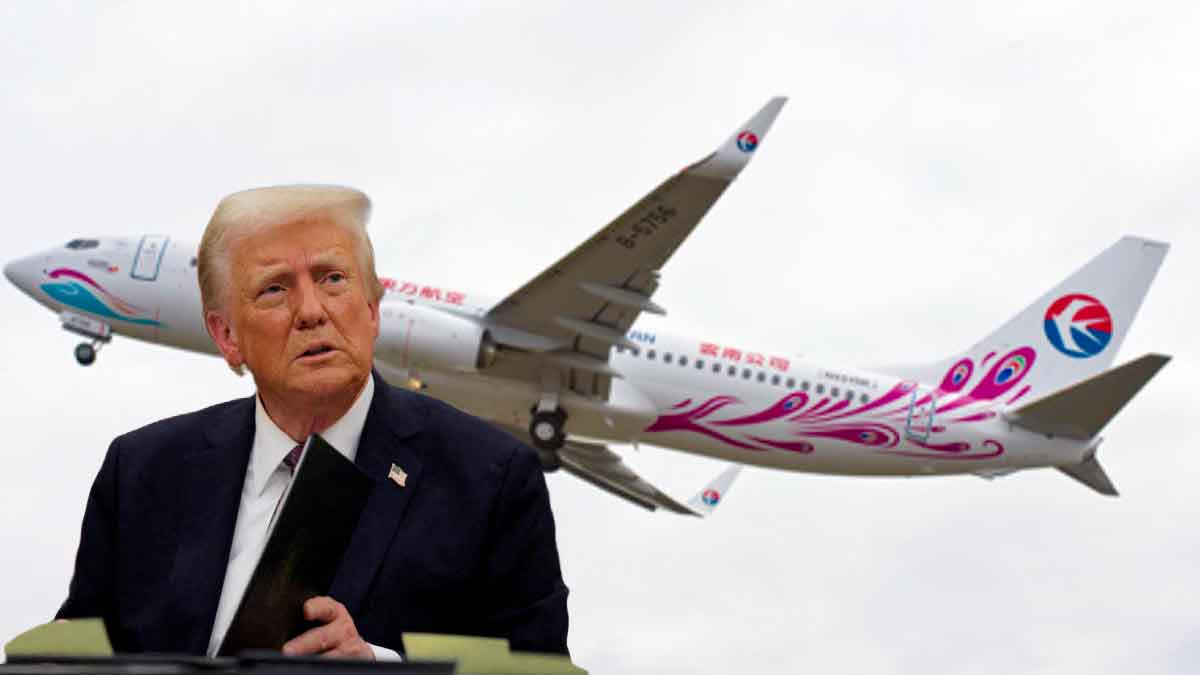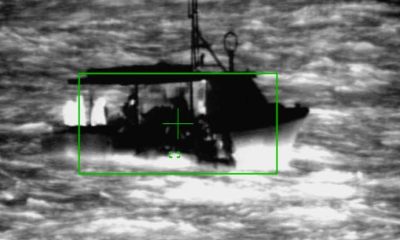National
China Orders Boeing Jet Purchases Stopped
President Donald Trump confirms China’s halt on Boeing jets as trade war intensifies.

The Chinese government has ordered domestic airlines to stop accepting deliveries of Boeing airliners in retaliation for U.S. tariffs imposed by the Trump administration, according to a report in Bloomberg.
China also directed carriers to stop buying airline parts and other related components from all U.S. companies.
Boeing (BA) dropped 2.36% on the news, closing down -3.76 at 155.52. At the time of publication, Boeing had not responded to our request for comment. Airbus SE climbed 1.14% (+0.45), closing at 39.92.
U.S. President Donald Trump confirmed the situation on his personal social media network, Truth Social, saying, “Interestingly, they [China] just reneged on the big Boeing deal, saying that they will ‘not take possession’ of fully committed to aircraft.”
On April 8, Boeing reported that 130 commercial aircraft, including 105 737s, were delivered in the first quarter of 2025. Boeing does not provide a breakdown of deliveries by customer or country. Spirit AeroSystems builds the 737 fuselages in Wichita, Kansas, and they are shipped by train to Renton, Washington, for final assembly. Boeing employees approximately 67,800 people in Washington state between its Commercial Airplane and Defense, Space, and Security Programs.
During the first Trump administration in 2018, the U.S. aircraft manufacturer opened the Boeing Completion Center in Zhoushan, China, where aircraft receive their interiors and airline livery before delivery to Southeast Asian customers, including China. Southeast Asia is Boeing’s second-largest market, behind North America.
China and Russia Attempts to Build Competing Aircraft
China started domestic development of the COMAC C919 in 2008, a passenger plane similar to the Airbus A320neo and Boeing 737-MAX. Flight testing started in 2017, and Eastern China Airlines took delivery of the first aircraft in 2023. The first commercial flight outside of China was in June 2024.
The largest customer is Tibet Airlines, which ordered 40 aircraft with high-altitude modifications. Russian domestic airlines were forced to cancel their orders for the C919 in 2022 and 2023 due to U.S. sanctions.
In 2015, China started developing the C929, a widebody jet to compete against the Airbus A330neo and the Boeing 787. Three years later, a memorandum was signed with Russia to jointly develop the plane, creating the China-Russia Commercial Aircraft International Corporation Limited company (CRCAIC). The aircraft was dubbed the CR929 (China-Russia).
The COVID-19 pandemic and the escalation of the Russia-Ukraine War stalled development, and in 2023, Russia quietly withdrew from the CRCAIC for economic reasons. The airplane was renamed the C929, with the first prototype expected in 2027.
Russia announced its intent to produce a 737 and A-320neo competitor in 2005, designated the Yakovlev MC-21. The first deliveries were supposed to be in 2017, but numerous delays have plagued development, including the COVID-19 pandemic and its reliance on U.S. jet engines. Eight prototypes with a lower-efficiency Russian engine have been built. Commercial deliveries with a Russian-designed engine that would match 2005 specifications are delayed to 2027.








